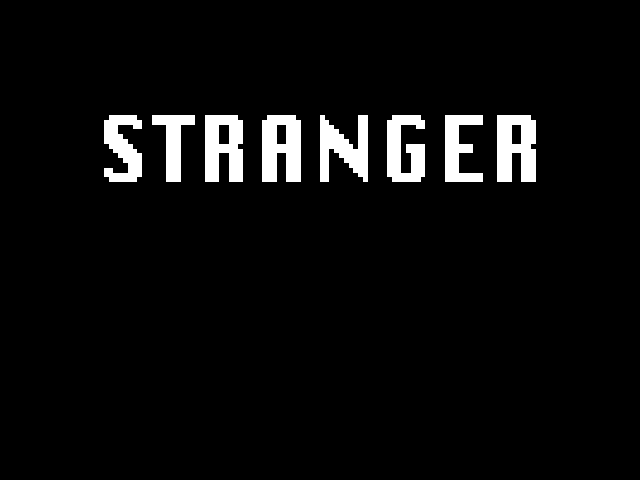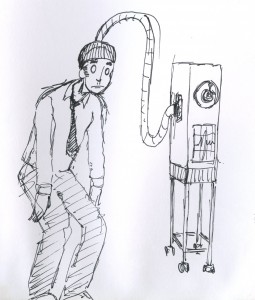Was having posting problems, just got this up now.
Debrisphere
Any sufficiently advanced technology is indistinguishable from magic.
You float high above the last wisps of Earth’s atmosphere, ready to receive signals from mission control. As a satellite, you have joined your fellow machines beyond the sky, given a vital task to perform. Around you floats the debris of thousands of satellites whose functions have already ceased.
You, the protagonist, starting up for the first time after your delivery into space, must remember your purpose. Are you meant for communications? Spying? Destroying other satellites? Once you have fully awoken, will you be able to carry out your task? You must choose to properly interpret and act on whatever data you gather. The ramifications of a malfunction could reshape the face of the world, or simply result in you joining the dead hunks of metal that surround you. The same could happen if you do your job well.
And while it happens, the only people who will truly understand what is going on will be mission control.
REM
Out of random eye movement, you are born, a subconscious construct formed during a dream. What form you take, and the ultimate resolution of the dream, depends on how you react to the dreamer’s presence. In turn, the dreamer reacts to you. Ultimately, the contents of the dream are revealed to be based off of the dreamer’s most recent waking experiences, and what lesson or conclusion the dreamer draws from this will be based on your choices.
In seeing the dreamer, you may choose not to react at all. You may choose to take the form of someone from the dreamer’s life, or perhaps an object or environment. Through a certain combination of choices (appeals to the dreamer’s logic) you can choose to make the dreamer lucid, or end the dream prematurely.
What you are affecting is the consolidation of the dreamer’s memory, the way they reflect on their experiences. There is no real goal, only cause and effect.







